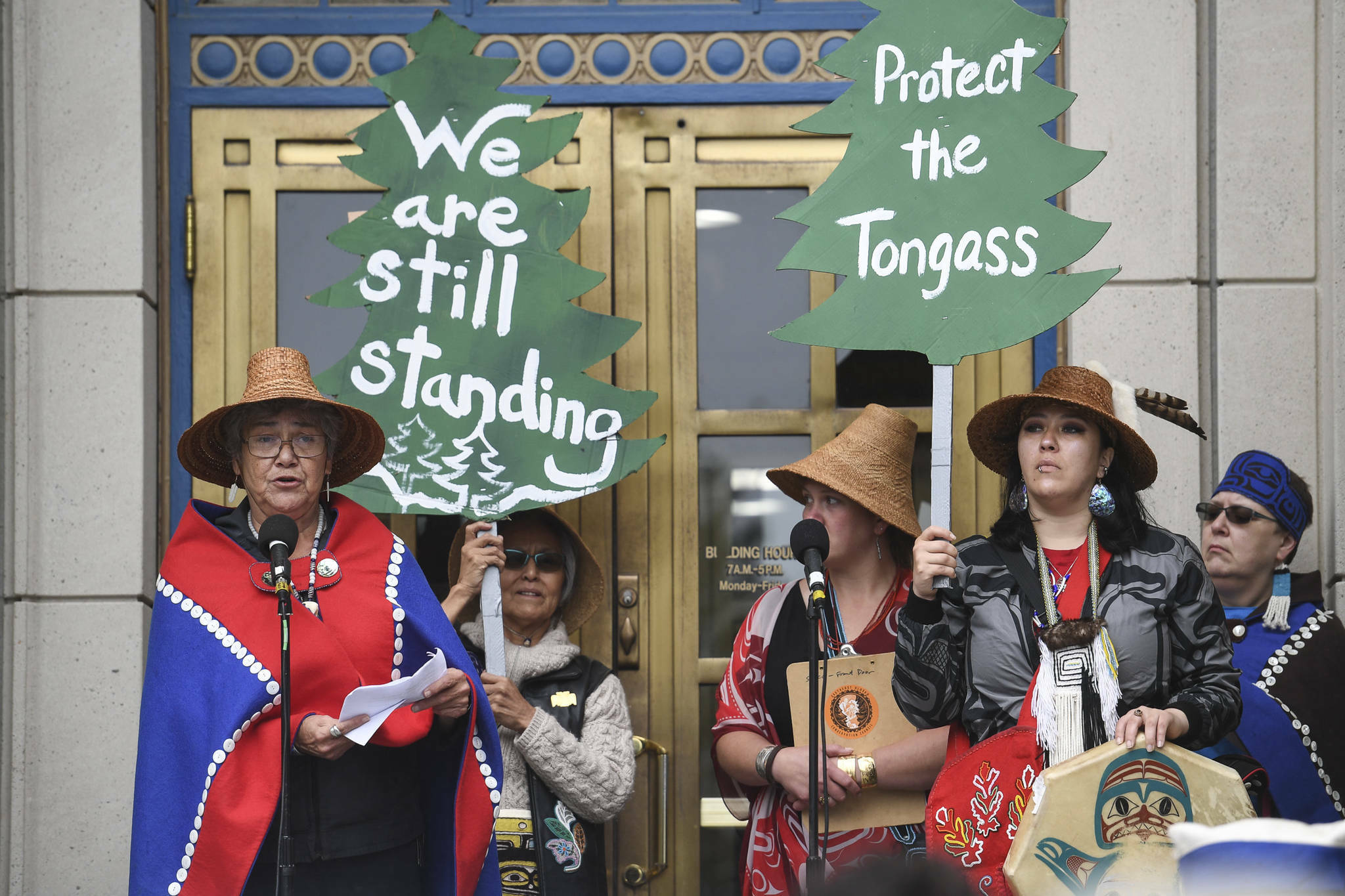The 1971 Alaska Native Claims Settlement Act (ANCSA) has never addressed Native claims. ANCSA is an industrial-rooted tool of Congress, created to exterminate Indigenous land use and streamline the liquidation of “natural resources” in our ancient ancestral homelands. The word “Native” in the law is a misnomer.
In December, Lisa Murkowski’s “Unrecognized Southeast Alaska Native Communities Recognition and Compensation Act” Senate Bill S.1889 (also a misnomer) advanced out of committee. If passed by the U.S. Congress, the bill would remove 115,200 acres of public land from the Tongass National Forest and deed them to five new Native “urban” corporations. According to the Forest Service, nearly every cherry-picked parcel contains old-growth forests, and 52% contains inventoried roadless acres — areas currently protected by the 2001 Roadless Rule.
If Murkowski’s bill succeeds the consequences would be catastrophic for all Tongass communities. ANCSA is not Native claims, but a for-profit enterprise created to exploit the land. In 1971, Sealaska received its first land selections from the Tongass National Forest, including thousands of acres around my Tlingit village of Hoonah where we pick berries, fish, hunt and gather medicinal plants.
In the early ‘80s, Sealaska Corp. clear-cut nearly all of the lands around Hoonah and by 2005 they had cut the entire timber inventory. Logging was done without regard to its impacts on the Tlingit’s traditional land use or our subsistence-based community. U.S. taxpayers kicked in $1 million per mile of logging roads to accommodate the industry’s demands, resulting in Hoonah being surrounded by 600 miles of logging roads and five logging camps.
Sealaska logged 20,000 acres of old-growth forests around Hoonah, weakening our wild salmon-bearing watersheds, destroying wildlife habitat, causing landslides and further destruction within Hoonah’s traditional territory until today.
The payoff? Meager shareholder dividends that I and 26,000 other Alaska Natives received from Sealaska, valueless compensation for hillsides void of life and streams without salmon.
In 2014, the U.S. Senate deeded another 70,075 acres of land from the Tongass to Sealaska. Sealaska again clear-cut many of these lands with the most unsustainable logging practices on Earth, exporting raw logs out of Alaska.
ANCSA has been used as the ultimate tool of colonization. It has facilitated the destruction of our ancestral lands while alleviating the concerns of a public that has fought long and hard for the protection of the Tongass National Forest.
The organized interests behind this legislation, including Sealaska (who gave $500,000 to promote the bill), are expressed in Sealaska board member Richard Rinehart’s words, “You can’t take logging off the table.” Beyond logging, the lands deeded from the national forest by S.1889 would become vulnerable to future mining projects that could devastate water quality and salmon runs.
U.S. Rep.Mary Peltola, whose staffers include Republicans, introduced H.R. 4748, a duplicate version of S.B. 1889. The bill is adding weight, using ANCSA to destroy Alaska Native ancestral lands. The selection maps for Senate Bill S.1889 clearly target areas with the best timber instead of regions around each landless community. For instance, Tenakee land selections include thousands of acres being claimed in the Hoonah’s traditional use area, the territory of my people.
Murkowski has publicly stated that her goal is to create a 2,000,000-acre state forest in Southeast Alaska. Instead, she appears to be creating privatization scheme after privatization scheme. She is wielding ANCSA as a weapon against anyone who dares oppose her agenda of extraction. Murkowski will make Indigenous cultures pay yet another high price as she supports the corporate agenda to industrialize and profit from the destruction of the Tongass National Forest.
The landless bill is not about valid Native claims — it is about predatory corporate interests. The promise of genuine Native claims has never been fulfilled — not then and not now. Today’s roadless protected areas offer more benefits to Alaska Natives and forest communities than ANCSA ever can.
Tribal members and citizens of Southeast Alaska must play a significant role in preserving the Tongass Forest. Our protective fierceness for this land is an asset that will benefit all Alaskans and all humanity for generations to come.
• Wanda Culp is a Tlingit elder, tribal member and original ANCSA shareholder who lives in Hoonah.

